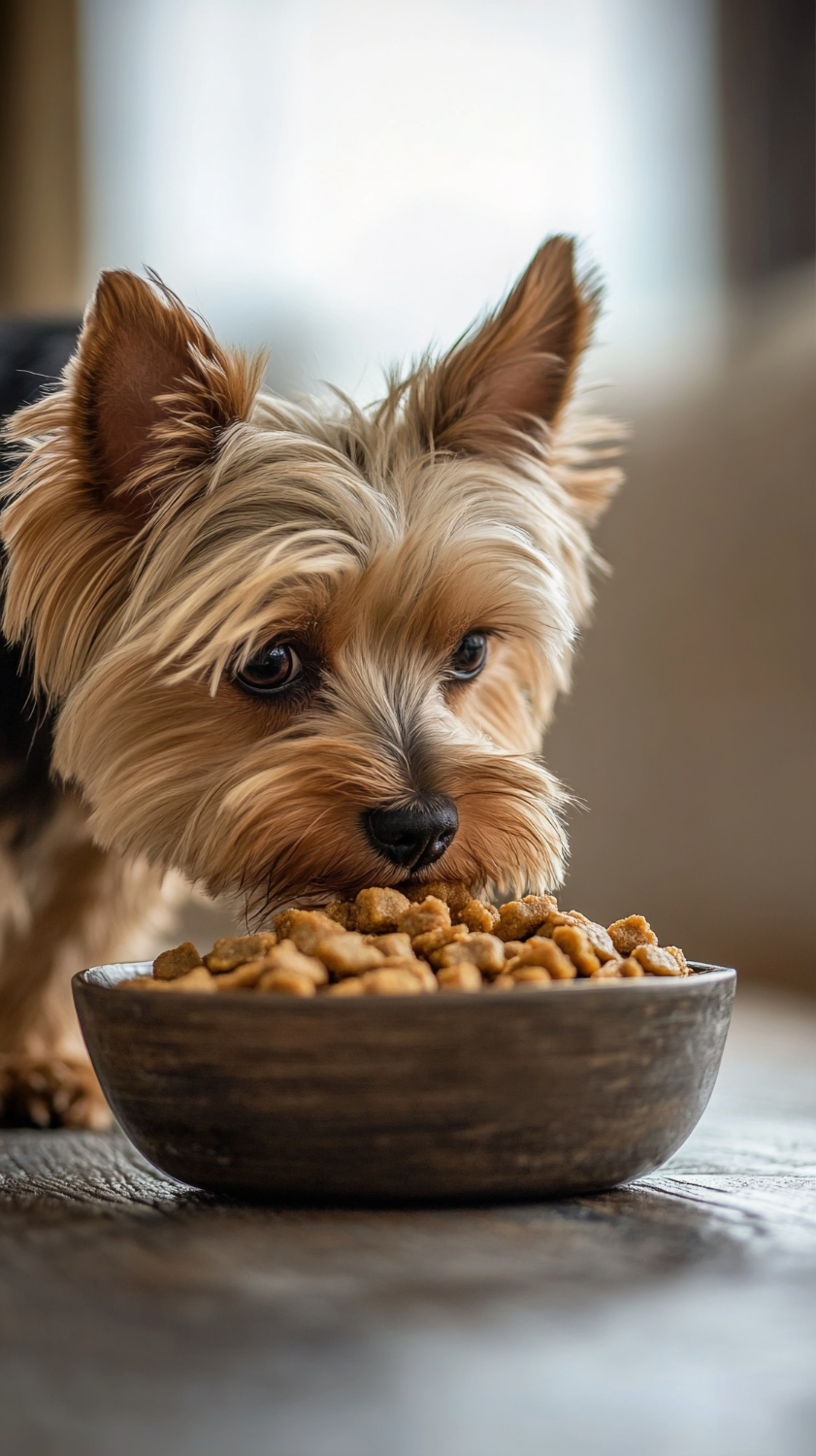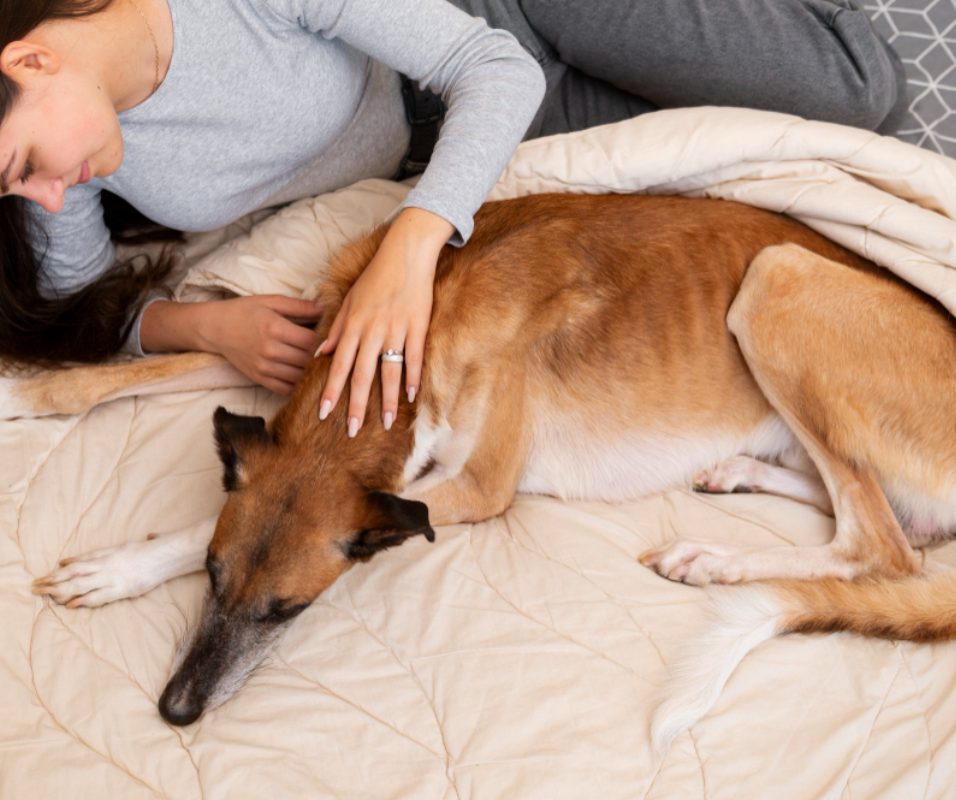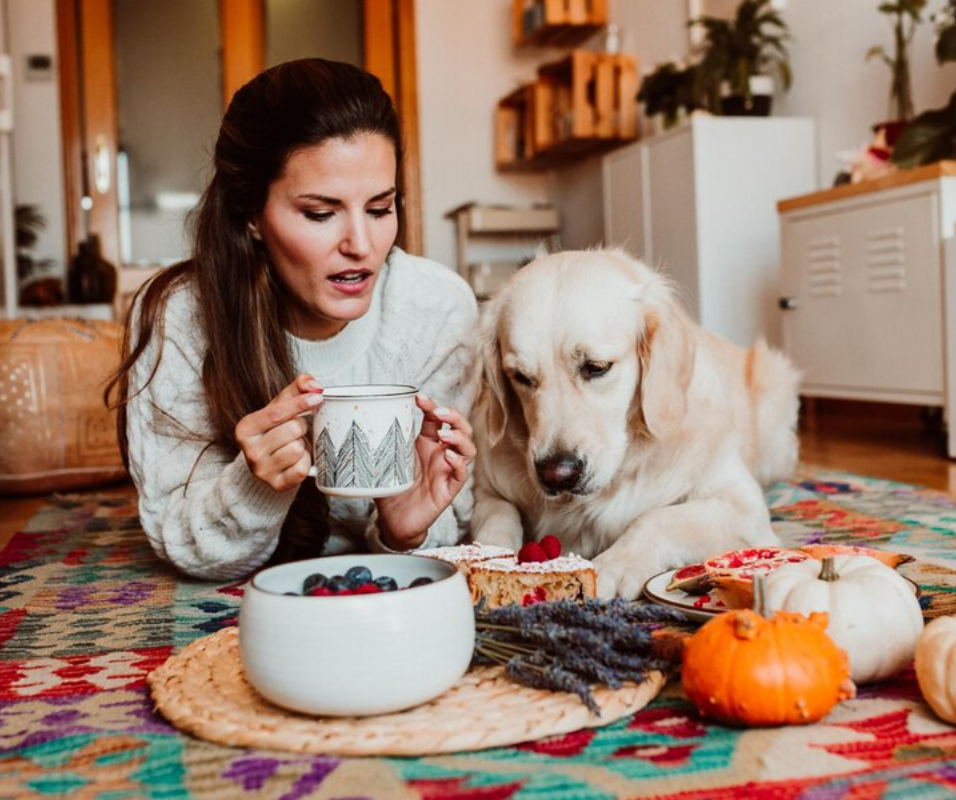Ever wonder whether dogs can eat chickpeas? Many human foods are perfectly safe for dogs, but understanding their ingredients is important to do so safely. We’ve rounded up the inside info on sharing.
In this guide, we’ll explore whether chickpeas are a good choice for your dog, examine various products that include chickpeas, and offer insights into homemade chickpea recipes. By the end, you’ll clearly understand how to safely add chickpeas to your dog’s diet and the best products and services available.
Let’s discuss the question: “Can dogs eat chickpeas?” and discover everything you need to know about these beans and their role in your dog’s diet.
Can Dogs Eat Chickpeas?
Chickpeas, also known as garbanzo beans, are rich in nutrients that can benefit dogs. They contain high levels of protein and fibre, as well as essential vitamins and minerals. These nutrients can contribute positively to your dog’s health when included in their diet.

dogs can eat chickpeas! Like a lot of veggies, feeding chickpeas to your dog is perfectly safe as long as they haven’t been altered.
Pros.
- Digestive Health
The high fibre content in chickpeas supports healthy digestion and regular bowel movements.
- Energy Boost
Chickpeas provide a good source of protein and carbohydrates, giving your dog the energy they need.
- Overall Wellness
Essential nutrients in chickpeas can support your dog’s immune system and overall well-being.
Cons.
- Digestive Problems
If not prepared correctly, chickpeas can cause gas or stomach upset. They should be cooked thoroughly to avoid these issues.
- Assistance Needed
Overfeeding chickpeas can lead to digestive discomfort, so they should be given in moderation.
Dog Foods with Chickpeas

1. Hummus for Dogs
A healthy and nutritious snack made with chickpeas, hummus is high in fibre and protein and contains over ten micronutrients.
But Avoid feeding your dog processed chickpea products like hummus wherever possible this is because chickpea is the primary ingredient in hummus, and even the ‘healthier’ hummus brands contain large quantities of fat in the form of olive oil, which isn’t good for your dog.
2. Chickpeas Flour
Chickpea flour is a good ingredient for dog treats because it’s high in protein and fibre, easy to digest, and low on the allergy scale for dogs. It can also be used as a substitute for wheat flour in recipes for dogs with wheat allergies.
3. Canned Chickpeas
You might think all chickpeas are created equal, but that’s not necessarily true. When chickpeas are canned, a large amount of sodium is typically used, which is not healthy for dogs.
If you want to share canned chickpea beans with your dog, purchase a low-sodium variety and wash them thoroughly to remove as much salt as possible. But aside from the sodium levels, canned chickpeas are still healthy for your pup.
4. Dried Chickpeas
Only offer your dog dried chickpeas after the beans are thoroughly cooked and soft. When dry, chickpeas can present a choking hazard for dogs and are much harder for them to digest. Cook the chickpeas until they are soft enough to mash with a fork—only then are they safe to offer to your dog.
Dog Treats with Chickpea
1. Buffalo Wilderness Wild Bones
Blue Buffalo Wilderness Wild Bones are dog treats made with chickpeas and other natural ingredients. These treats are designed to be both nutritious and satisfying for your dog.
Benefits
Chickpeas in these treats provide fibre and protein, supporting dental health and overall wellness. The treats are free from artificial additives and are a great option for training or rewarding your dog.
Customers Review
Pet owners appreciate the quality and taste of these treats, noting their dogs love them and they support healthy digestion.
2. Merrick Power Bites Grain-Free Treats
Merrick dog treats include delicious double-brush dental treats, delicious BBQ-style jerky treats, small-size treats for small breeds, and soft or crunchy treats perfect for training and rewarding.
At Merrick, our dog treats prioritize wholesome ingredients to make treats that are delicious for your dog’s overall health. They are designed for training and rewarding.
Benefits
These treats provide a protein boost and are easy on the digestive system. They are also formulated without grains, which can be beneficial for dogs with food sensitivities.
Customer Reviews
Customers rave about the taste and effectiveness of these treats in training, as well as their positive impact on their dogs’ health.
Homemade Chickpea Dog Food Recipes
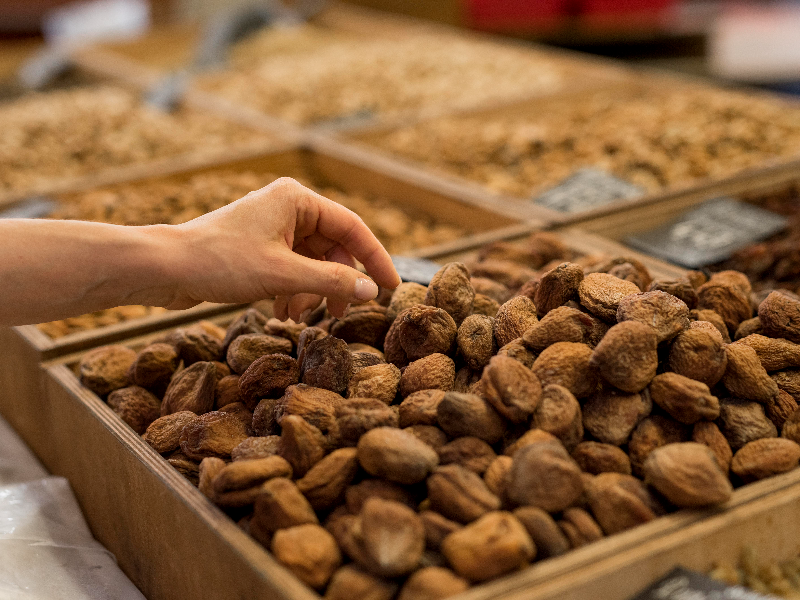
Why Make Your Own?
Homemade dog food allows you to control the quality and freshness of the ingredients. Making your dog’s food at home ensures it’s free from preservatives and flavourings, and allows for customization based on your dog’s specific dietary needs.
1. Chickpea and Carrot Dog Biscuits
Material:
- 1 cup cooked chickpeas (canned or boiled)
- ½ cup grated carrot
- ¼ cup oat flour
- 1 egg
Instructions
- Place a baking sheet on the bottom rack of the oven and preheat it to 350°F (175°C).
- In a food processor, blend the cooked chickpeas until smooth.
- In a mixing bowl, combine the chickpea paste, grated carrot, oat flour, and egg, stirring until a dough forms.
- Roll out the dough on a floured surface and cut it into small biscuit shapes.
- Arrange the biscuits on the prepared baking sheet.
- Bake for 20 to 25 minutes or until golden brown.
- Let the biscuits cool completely before serving them to your dog.
2. Chickpea and Pumpkin Dog Stew
Material:
- 1 cup cooked chickpeas (canned)
- ½ cup canned pumpkins
- ¼ cup cooked and shredded chicken
- ¼ cup peas
- ¼ cup carrots, chopped
- 2 cups low sodium chicken or vegetables
Instructions:
- In a large pot, combine chickpeas, pumpkins, shredded chicken, peas carrots and broth.
- Bring the mixture to a boil then lower the heat and wait for about 15 to 20 minutes.
- Before giving chickpeas to your dog make sure that soup will be cool.
Services to Help with Dog Nutrition
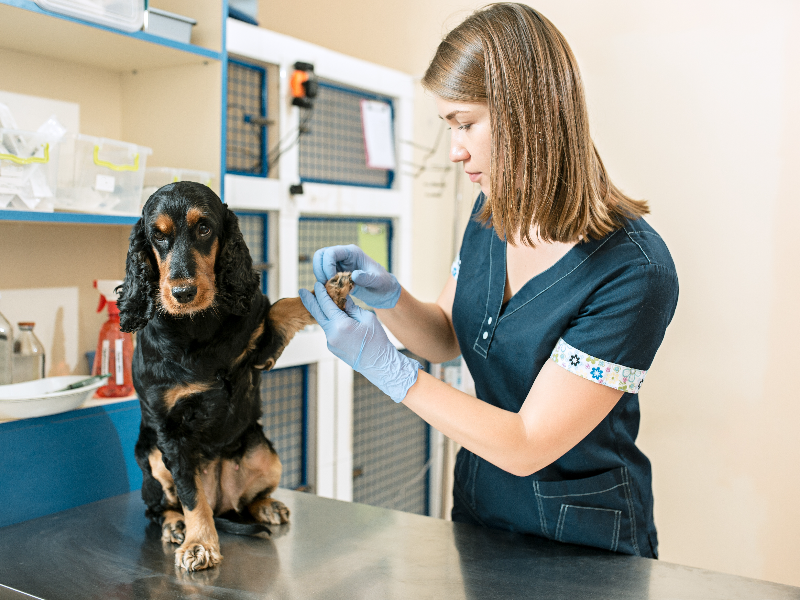
Online Consultation Services
1. Just Food for Dogs
JustFoodForDogs offers online consultations with veterinary nutritionists who can help you incorporate chickpeas into your dog’s diet. They provide personalized dietary plans and recommendations.
Benefits
Access to expert advice on nutrition and customized meal planning for your dog. The service is known for its thorough and professional approach.
Cost
Consultation fees vary; check their website for details.
2. Pet Nutrition Alliance
PNA is a global collaboration of nine veterinary organizations that offers pet nutrition resources and education to the veterinary healthcare team.
Benefits
Personalized advice and dietary planning to suit your dog’s health needs. Known for its comprehensive support and user-friendly platform.
Cost
Consultations are priced based on service level visit their website for more information.
Local Vet Services
1. Companion Animal Veterinarian
Companion animal veterinarians specialize in the care of small animals like cats, dogs, and some pocket pets. They are called General Practitioners and would be the equivalent of your family doctor.
2. Exotic Animal Veterinarians
These veterinarians are specially trained or have a special interest in caring for exotic animals including pocket pets, reptiles, amphibians, and birds. Some exotic animal veterinarians treat pets while others treat animals at a zoo or other wildlife habitats. Some of them also obtain additional training to become an exotic animal specialist.
Safety Tips and Expert Opinions
Veterinary experts generally agree that chickpeas can be a healthy addition to your dog’s diet when prepared properly. They recommend starting with small amounts and observing your dog for any adverse reactions.
Allergic Reactions
Are chickpeas safe for dogs? While chickpea allergies are rare, some dogs may experience symptoms like itching, vomiting, or diarrhoea. If you notice any of these signs, Stop feeding chickpeas and consult your veterinarian.
Preparing of Chickpeas
Always cook chickpeas thoroughly before serving them to your dog. Avoid adding salt, spices, or other seasonings, as these can be harmful to dogs. Plain, well-cooked chickpeas are the safest option.
Conclusion
To wrap things up, chickpeas can be a valuable addition to your dog’s diet, offering benefits like improved digestion, a boost in energy, and support for overall wellness. However, it’s essential to prepare them properly and feed them in moderation to avoid any digestive issues. Always start with small amounts and monitor your dog for any adverse reactions.
As with any dietary change, consulting your vet is the best first step. They can offer personalized advice tailored to your dog’s specific needs. Don’t forget to explore the products and services mentioned in this guide to find the best options for incorporating chickpeas into your dog’s meals.

Can dogs eat chickpeas? Absolutely—but with the right preparation and guidance, they can be a healthy and tasty treat for your furry friend.



